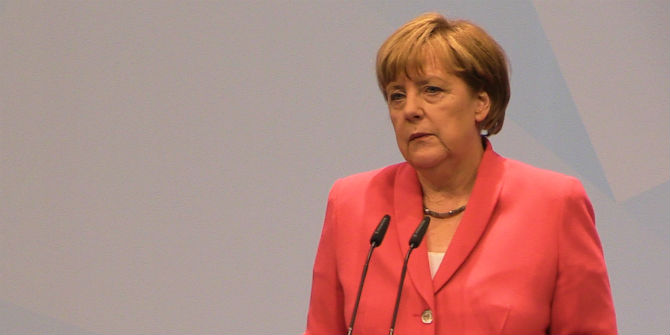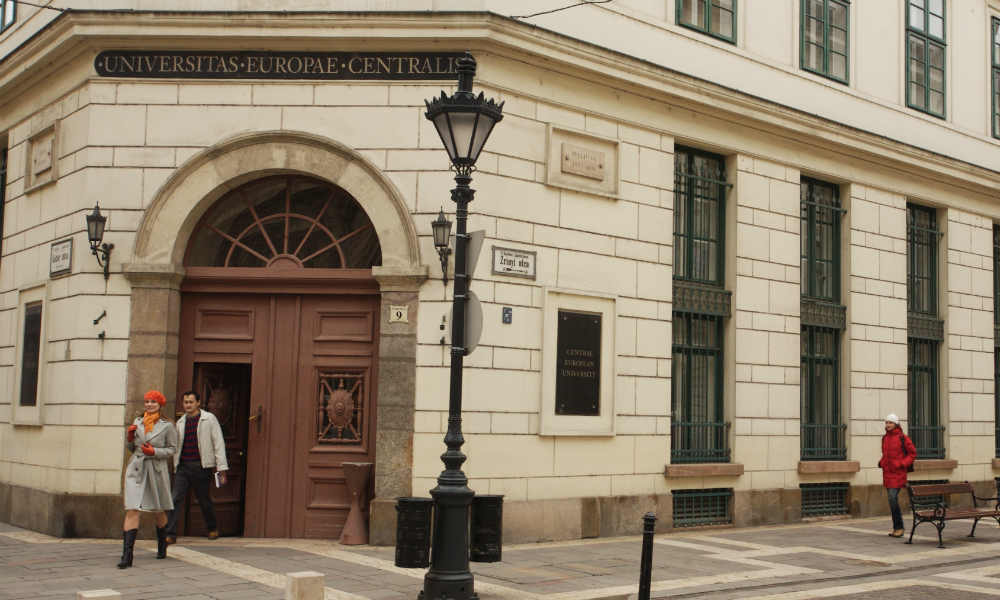 Last night’s discussion over the venison was encouraging for David Cameron, writes Iain Begg. EU leaders are willing to seek solutions to many of the UK’s demands. But on the vexed topic of migration, room for manoeuvre is very limited. His team will need to pull a Christmas rabbit out of the hat.
Last night’s discussion over the venison was encouraging for David Cameron, writes Iain Begg. EU leaders are willing to seek solutions to many of the UK’s demands. But on the vexed topic of migration, room for manoeuvre is very limited. His team will need to pull a Christmas rabbit out of the hat.
Yesterday’s dinner discussion of what the UK wants from a new deal with the EU was always intended to be about the politics, not the detail. The terse, three-line conclusion issued by the European Council tells us that the debate was ‘substantive and constructive’, but (as expected) that the aim is now to work towards ‘mutually satisfactory solutions’ to be hammered out at its next meeting, late in February. For all the talk of a ‘pathway’, ‘good progress’ and ‘a big step forward’ some pretty hard bargaining must now be expected.
Three things should, nevertheless, now be clear. The first, which will be encouraging for David Cameron, is that there is a collective will to find solutions: ‘not compromises, solutions’ as he put it in his statement to the media. The (not very) coded message behind ‘solutions’ rather than ‘compromises’ is that the focus has to be on outcomes, not the means by which they can be attained. A close reading of the Prime Minister’s Chatham House speech last month reveals that he was already receptive to this approach and had carefully prepared the ground for changing the detail of what he wanted, notably on migration. Recognising the sensitivity for others, he said: ‘I am open to different ways of dealing with this issue’.
For many of the UK demands, a range of solutions can be envisaged. Finding a way of exempting the UK from ‘ever closer union’, for example, should not be that hard and there are plenty of precedents on which to draw, one of which – the Edinburgh Agreement – was, somewhat ironically, brokered by the UK in 1992 to facilitate solutions for Denmark after it rejected the Maastricht treaty. As Alex Barker of the Financial Times explained in an article published in May 2015, a carefully crafted mix of promises and legal devices did the trick, despite the deep pessimism at the start of the meeting. It should also be possible to devise formulae to enable the EU to safeguard the interests of the countries not in the euro.

The second implication of what transpired this week is, however, that Cameron’s room for manoeuvre on migration is now very limited. Whatever the merits (and, analytically, they were never strong) of the case for a four year qualifying period before EU migrants become entitled to in-work benefits as a means of deterring them, there are too many veto-wielding opponents for this to be viable. Scaling-down the period to two years, as has apparently been canvassed by some other leaders, is just as discriminatory as four years and therefore just as much in conflict with the principle of free movement. It is therefore hard to see why it would be any more acceptable to the leaders of Poland and the UK’s other erstwhile allies in central Europe, than four years.
Third, it follows that a different ‘solution’ will now have to be found if the ambition of reducing net migration to tens of thousands is to be realised. Setting a net target which combines inflows of people from both the EU and other part of the world, offset by outflows of those who choose to leave the UK was always going to be tricky to attain. Expect to hear more about ‘emergency brakes’ or, who knows, a wholly different means of curbing EU immigration in the short-term, such as a temporary security-related limit, something linked to the availability of housing or health service capacity, or even new ways of counting who is a migrant (maybe EU students could be excluded).
Given the high salience of the migration issue, a rabbit of some sort is going to have to be pulled out of the hat if Cameron’s renegotiation strategy is to succeed. He will be hoping that his team has a creative Christmas.
Iain Begg is a Professorial Research Fellow at the European Institute, London School of Economics and Political Science, and Senior Fellow on the UK Economic and Social Research Council’s initiative on The UK in a Changing Europe.







Isn’t one obvious fix for at least part of the migration flows to take students out of the numbers? Students are not migrants, and they draw on no UK benefits (except perhaps NHS). New Zealanders who move to Australia for work are not eligible for benefits if they lose that work (unless they become OZ citizens). This is now accepted by all parties as some kind of rough justice. It seems to me that the in-work benefits issue is a bit of a red herring. If a migrant can find a UK job against local competition, despite preferences for local hires, how is that a problem? The proverbial “polish plumbers” (excuse the alliteration) actually helped the economy. But once people are out of work, then it becomes harder to justify drawing benefits.
Cameron’s ‘negotiations’ are laughable. The plan is that he goes in with practically meaningless demands, which are initially rejected, but then later accepted to look like a victory. I think the whole thing will backfire. I think Cameron/EU leaders are underestimating the british public, who may well vote OUT.